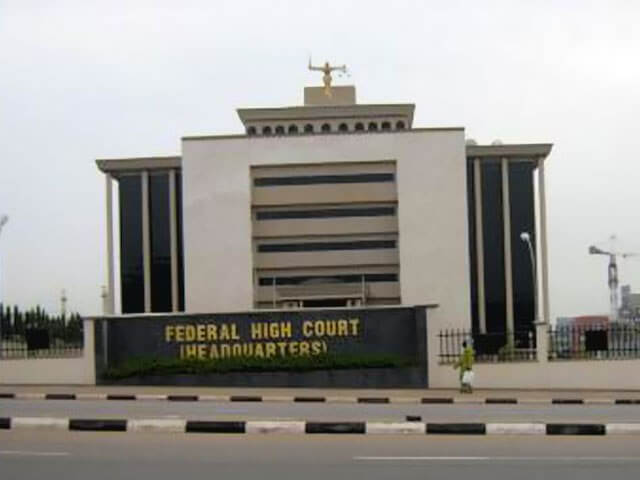Poor Nigerians No Longer Need To Borrow Money To Pursue Human Rights Cases – Ozekhome, Others Explain Abolition Of ‘Fees’
Some legal practitioners have explained the rationale behind the Federal High Court’s recent abolition of monetary claims and default fee charges in human rights applications.
THE WHISTLER had sought clarification from the lawyers, including a Senior Advocate of Nigeria, following different interpretations of the directive.
Advertisement
Justice John T. Tsoho, Chief Judge of the Federal High Court, had in a recent circular barred deputy chief registrars and station registrars from collecting monetary claims and default fee charges in fundamental human right applications.
THE WHISTLER earlier reported that the circular (dated February 12) was signed by Jane Egbo (Esq.), Assistant Chief Registrar (Litigation).
It was, however, silent as to why the chief judge issued the directive.
But lawyers who spoke to this website explained that the directive was targeted at less privileged Nigerians who lack the wherewithal to pursue cases against those who infringe on their rights.
Advertisement
The Chief Information Officer, Federal High Court of Nigeria, Catherine Oby Nwandu, told THE WHISTLER that the circular was issued to enable the poor in the society fight for their rights without hinderance of being unable to pay for such charges.
Also speaking to our correspondent on the development, Mike Ozekhome, a Senior Advocate of Nigeria, said the end point of the CJ’s directive was to allow the poor access justice.
“It is a win-win for the judiciary, it is very good thing what the Chief Judge has done, because in fundamental right applications, it is taken that these are applications that are being filed by poor people who have been pummelled to the corner… and their rights are being infringed upon, so why should they be borrowing money again to file for the remedy of those grievances they are saying.
“So, it is a wrong thing that has been going on and I think the CJ was spot on by abolishing default fees on matters concerning fundamental human rights. I am quite impressed and it is kudos to the CJ and the situation because it is a win-win situation,” he said.
On his part, Abubakar Marshal (of the Falana Falana Chambers) told this website that he was among the lawyers who had protested those charges, adding that he was excited that the CJ removed it.
Advertisement
He said that while certain lawyers were guilty of exploiting their clients in such applications, “maintaining that policy would have in a way discouraged aggrieved persons from ventilating their grievances.”
He added that, “It is welcome development, that was what it was before the policy was introduced and then we complained, and it was reversed.”
Marshal added that when a person’s right is violated, and such person is asked to pay so much money before he or she can access the court, “so what now happens to indigent persons who don’t have the financial muscle to pursue those cases.”
He explained that aside filing a suit, monetary claims had to do with paying for every damage an applicant claims in the case.
In the same vein, Opeyemi Owolabi Esq. (of the Socio-economic Rights and Accountability Project) told THE WHISTLER that he believes that the aim of the circular was “to encourage that the right to fair hearing of all parties concerned is respected.”
Owolabi said, “The primary reason is that matter of fundamental rights, they are usually for the enforcement of the rights of human beings, they are different from monetary matters like business transaction between two persons. And these are usually public interest litigation matters and to ensure that the purpose of fundamental right suit is not lost on monetary issues.
Advertisement
“Most defendants in public interest litigations are public officers like the police, DSS; and in many occasions, default fees can be enforced against them depending on the nature of the suit, but for them to be able to respond and for you to be able to respond too and ensure that no process is lost, that is why the CJ now encouraged people that even if one is out of time in default of appearance or filing a counter affidavit, the person is not going to pay,” he added.
Our correspondent learnt that default fee is the cost a person pays if he or she defaults in a court process.
For instance, if one is expected to reply a suit (like counter affidavit) within five days; if it exceeds the stipulated day and the person has not replied, such person person will pay a fee for defaulting- but that is now abolished.



